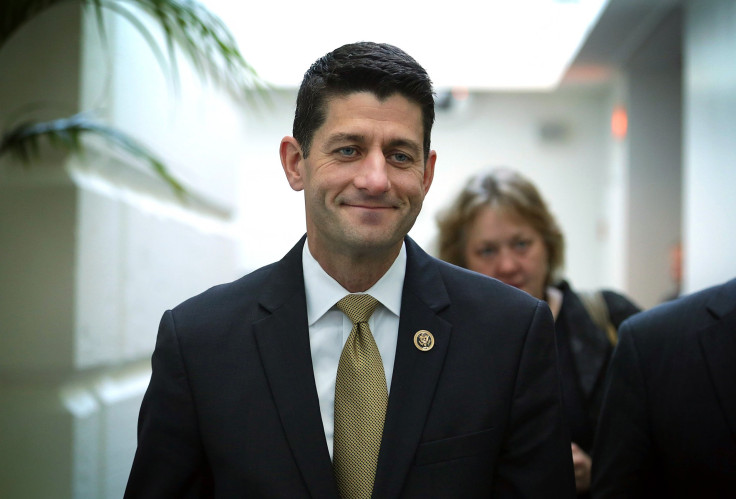Ryan Sets Ambitious Agenda If Elected House Speaker

By Richard Cowan
WASHINGTON (Reuters) -- Paul Ryan revealed a bold to-do list when he agreed to run for speaker of the U.S. House of Representatives, but to carry it out he will need a level of compromise and cohesion that has been sorely lacking on Capitol Hill for a long time.
If all goes as expected next week, the Wisconsin lawmaker and 2012 Republican vice-presidential nominee will replace John Boehner as House speaker. In announcing his willingness to seek the job, Ryan said in a statement to party colleagues:
"I know many of you want to show the country how to fix our tax code, how to rebuild our military, how to strengthen the safety net, and how to lift people out of poverty."
Ryan is known among Republicans as a policy expert. He has carved out well-known positions on tax, budget and social policy that have, in the past, encountered intra-party conflicts, Democratic opposition and special-interest lobbying resistance.
At the same time, he partnered with Democratic Senator Patty Murray in 2013 on a budget compromise that averted fiscal calamity by focusing on finding bipartisan common ground.
If he is elected speaker next week, Ryan will be taking the reins at a similarly crucial fiscal moment, with the added complication of a 2016 presidential campaign in which Republican front-runner Donald Trump is pushing the party to the right.
"There's probably a honeymoon period," said veteran Republican Representative Mike Simpson of Ryan's likely tenure in the House's most powerful post. "But it will be very brief because we've got some big issues."
Ryan might dodge having to steer a controversial increase in U.S. borrowing authority through the House - something that enrages conservatives - if Boehner takes care of it before he leaves on Oct. 30.
But in December, a decision must be made on the budget to prevent a government shutdown like the one Republicans forced in October 2013.
His handling of this difficult negotiation will show if Ryan leads "in a pragmatic, effective way or in a way that is ill-conceived and unrealistic," said Representative Steny Hoyer, the No. 2 House Democrat.
It is on social issues that Ryan is most likely to butt heads with Democrats. His talk of strengthening the "safety net" likely covers the federal government's costly Social Security retirement pension program and Medicare and Medicaid healthcare subsidy programs for the elderly, disabled and poor.
Ryan launched himself onto the national stage in 2011 with a plan to convert the popular fee-for-service Medicare program into a system of subsidies for seniors to buy coverage from private insurers, or a scaled-back Medicare. The plan infuriated Democrats, with one TV attack ad depicting a Ryan impersonator pushing a wheelchair-bound elderly woman over a cliff.
Senate Democratic Leader Harry Reid this week praised Ryan as the only person who might be able to end Republican strife in the House and work with Democrats on fiscal issues. At the same time, Reid warned, "I will continue to oppose Congressman Ryan’s plans to privatize Medicare and slash Social Security."
(Editing by Kevin Drawbaugh and James Dalgleish)
© Copyright Thomson Reuters {{Year}}. All rights reserved.




















